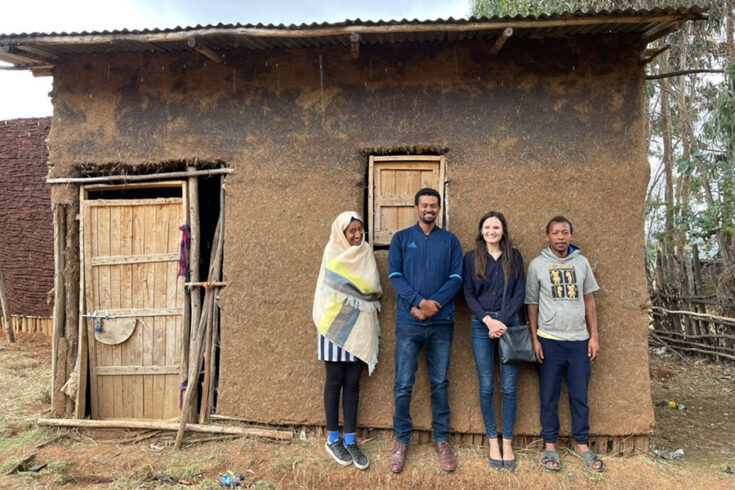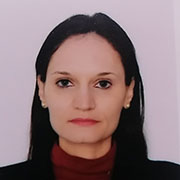Fostering links between higher education and the creative industries to generate societal benefits through research and innovation is a salient priority for the Arts and Humanities Research Council (AHRC).
This is a move in the right direction. Research is necessary for understanding the complex causes and mechanisms that maintain societal problems, such as domestic violence, and for designing interventions and programmes that can directly respond to the complex and interdisciplinary nature of these issues.
However, research published in specialised journals or other academic platforms cannot achieve the type of public engagement and uptake that is needed for research to become sufficiently impactful across wider audiences.
The creative industries can allow us to communicate research findings and scientific evidence in accessible formats that different audiences can engage with, leaving a lasting impression with the prospect of generating long-term effects.
This same rationale informed my decision to integrate filmmaking in my Future Leaders Fellowship grant, which has resulted in project dldl/ድልድል, a project dedicated to developing and strengthening domestic violence responses in East Africa and the UK. To achieve this, I developed an innovative collaboration model working with two film companies in Ethiopia and the UK. Together we produced a multilingual, culturally-adapted and faith-informed film on domestic violence and help-seeking in Ethiopia for public education and awareness-raising.
Co-production and societal benefit as drivers of project dldl/ድልድል
Very little research on domestic violence has historically explored strategies to respond to domestic violence within communities’ religious worldviews and culture-specific gender arrangements and conditions. To reverse this pattern, as a UK Research and Innovation (UKRI) Future Leaders Fellow I proposed to set up project dldl/ድልድል, project ‘bridge’, named in Tigrigna, one of many languages spoken in East Africa.
The project aspires to streamline an approach in African gender and development work that prioritises the communities’ own definitions and understandings of domestic violence and works within religious worldviews in their cultural context to respond to the problem appropriately.
In parallel, the project also aims at societal benefit through an innovative collaborative model to produce research, interventions and knowledge exchange with project partners in Ethiopia. Evidence and good practices are then applied to improve domestic violence services to migrant and ethnic minority religious communities in the UK.
The project is innovative insofar as it defines impact according to each community context together with our partners and collaborators. One of these forms of impact includes producing resources for public education and awareness-raising that grassroots organisations may not have the resources to produce themselves.
To achieve this, the project employs many of the strategies identified in AHRC’s strategic delivery plan, including:
- taking an interdisciplinary approach to domestic violence by combining religious studies, gender studies, international development and psychological perspectives
- creating connections across sectors, people and capabilities, and promoting a global, transboundary response to domestic violence
- developing and working through trust-based and mutually beneficial partnerships across East Africa and the UK
Producing a docudrama on domestic violence and faith in Ethiopia
The film tells the story of Genet, an Ethiopian Orthodox believer who is experiencing domestic violence in her marriage. It narrates her search for a moral and practical solution within the Ethiopian rural context and her valued religious worldview.
Genet’s story is a collation of stories and testimonies of real people that I collected in long-term anthropological research in northern Ethiopia and direct engagement with clergy in central and south Ethiopia, subsequently synthesised into a single film script. These original real stories are re-enacted by Amharic-speaking actors in Ethiopia, with subtitles being produced in Tigrigna, Afaan Oromo and English by first language speakers.
The aim of the film is to share the research findings in a more accessible format with diverse linguistic and cultural audiences in Ethiopia to nuance current understanding about domestic violence and how this is experienced in reference to religio-cultural beliefs, practices and norms in Ethiopian society.
The film hopes to educate on the complex role that religious rationalisations and the clergy can often play in the experience of domestic violence in Ethiopia, influencing also victim’s responses and help-seeking attitudes positively or negatively, and to suggest how religious teaching and mediation could become more resourceful and effective in responding to the problem.
It also seeks to educate UK and international publics, enabling two-way learning and knowledge exchange.
To create the film I entered in a collaboration with Hermon Hailey and Max Conil at the UK-based production company Exile Pictures, who in turn partnered up with Yidnekachew Shumete Desalegn, co-founder of the Ethiopia-based production company Kurat Pictures.
Hermon is one of Ethiopia’s leading filmmakers and having worked extensively on topics such as sexual violence she was uniquely well-placed to produce the film.
In parallel, I supported Amharic, Tigrigna and Afaan Oromo translators in their effort to produce authentic and accurate translations of the film’s dialogues that were not only linguistically and culturally adapted, but also reflected the religious vernaculars of these diverse linguistic communities.
Over the span of two years, worked with Max, Hermon and Yidnekachew to develop and refine the film’s storyline and script. While I directed the creative vision throughout the film production, Max, Hermon and Yidnekachew managed the production and post-production process.
Challenges and opportunities
The film was produced during a time of turmoil for Ethiopia and while the COVID-19 pandemic was still ongoing.
A significant component of the research that informed the script development had taken place in Tigray region. With the outbreak of the war in the north of the country, the project moved to Amhara and Oromia regions, expanding to include communities there.
New research and intervention programmes that we implemented in the south provided the opportunity to enrich the script and to enlarge its relevance to other linguistic and cultural groups.
Such developments created the challenge to adapt the film culturally and to diversify its contents so that it both honoured the original testimonies collected and did not feel culturally-specific as the patterns and problems presented in the film emerged to be relevant to all the religious communities we engaged with in Ethiopia.
We also had to consider carefully security-related risks and to work within mobility restrictions imposed by the Ethiopian government and the Foreign, Commonwealth and Development Office.
During the production process, extensive discussions were held about the ethics of producing a docudrama on the sensitive topic of domestic violence, the ethics around engaging real communities in this process, and security concerns in Ethiopia.
These discussions always emphasised the prioritisation of the production crew’s safety in all stages of production and the need to minimise the likelihood of re-traumatising, stigmatising or misrepresenting victims and survivors or exacerbating perpetrators through the film.
We also needed to work to ensure the engagement of communities in shooting sites so that they could become active stakeholders in the process of production and could benefit in direct and material ways (such as by hiring supportive actors locally).
Having just released the trailer, we are starting to strategise how best to reach the relevant audiences and stakeholder groups in Ethiopia and abroad. This presents an ongoing challenge, reminding us that production without successful dissemination and uptake is half the story told.
Using film to address contemporary challenges
Co-producing the current film has been one of the most challenging, but simultaneously rewarding, experiences I have had as a researcher. The various risks and uncertainties we faced during its production have made me acutely aware of the need to systematically reflect on the practicalities of working with artists and filmmakers within and beyond the university, and the urgency to develop appropriate guidance for researchers to cope with the serious ethical issues and risks emerging in such projects.
I believe that research grounded in the real experiences of individuals and communities is a necessary bridge to cross in order to understand diverse realities and to develop solutions that respond to complex needs and situations.
When such research can be translated into film, art or sound to engage diverse audiences, we might be able to transform our research findings into a wider societal resource, and also open it to critique by those it concerns the most.
Then, we as researchers can learn in return and perhaps solve contemporary challenges with more humility and reflexivity as core ingredients of our approach.




